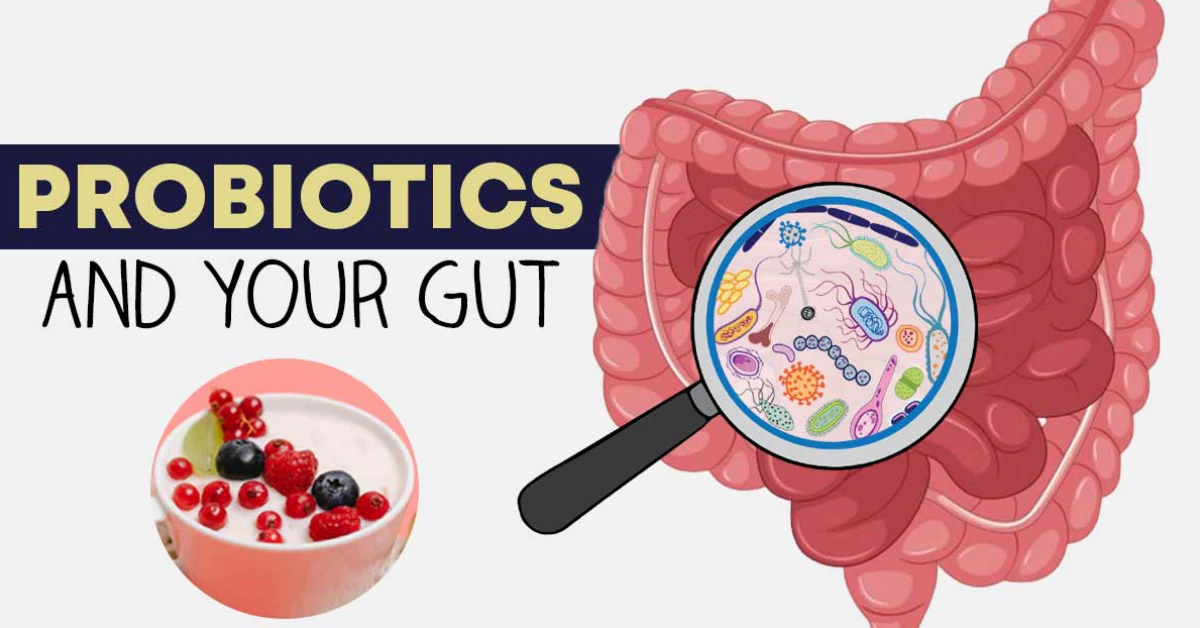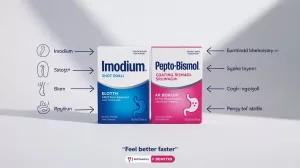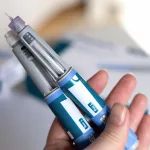You know that feeling when your stomach’s just… off?
Not full-out pain. Not emergency-level bloating. But that low-grade, draggy kind of discomfort. The one that makes you skip lunch because “eh, I’m not really hungry,” or makes you dread dinner plans even though you love food.
Yeah. I’ve been there.
And if you’re nodding right now, here’s a gentle truth: it’s probably not just what you’re eating. It might be your gut microbiome—the trillions of tiny bacteria inside your digestive tract—sending flares.
The good news? You don’t need a medical degree to fix it. And you definitely don’t need another bottle of overpriced probiotics that end up leftover on the shelf.
After trying half a dozen brands, reading studies, and talking to people like gastroenterologists and nutritionists, I found the ones that actually work. Based on science. Based on results. Based on real life.
So if you’re looking for the best probiotics for gut health in 2025—the kind that don’t make promises they can’t keep—let’s get into it.
Real Talk

First, let’s clear something up: not all probiotics are created equal.
Shocking, right?
I used to think, “Okay, blue bottle, 50 billion CFUs, gluten-free… looks legit.” Took it for a month. Felt… nothing.
Turns out, most probiotics never even make it to your gut. Stomach acid kills them before they arrive. So you’re basically paying for a very expensive placebo.
The best probiotics for gut health survive the journey. They land alive. They take up space. They push out the bad bacteria and start restoring balance.
And yes, some brands actually test that. Like Seed and Ritual—they’ve used advanced models like the SHIME® system to show their bacteria survive transit Seed.com. That’s not marketing. That’s proof.
So if you want results, look for:
- Survivability (delayed release, spore-based, or tested delivery)
- Clinically studied strains (like LGG® and BB-12®)
- Third-party testing for purity
- Transparency on sourcing
Now, let’s talk about the ones that earned a permanent spot on my shelf.
Top 7 Picks

I didn’t just pick these based on labels. I looked at real user experiences, clinical backing, and how they make people feel—not just in week one, but after months of use.
Seed DS-01® – For Total Gut Balance
If you want one probiotic that covers everything, Seed’s DS-01® is it.
It’s not just a probiotic. It’s a synbiotic—meaning it combines both prebiotics and probiotics. That’s key. You can’t just “add” bacteria. You have to feed them too.
This one’s packed with 24 clinically studied strains and 53.6 billion AFUs (Active Fluorescent Units—basically a more accurate way to measure live bacteria).
But what sold me? The reviews. Over 4,700 people have tried it. 4.9 stars. And so many say the same thing: “No burps. No bloating. Just… normal digestion.”
And yeah, it’s pricier than some. But knowing it’s been tested on the International Space Station for resilience? Kinda makes me feel safe taking it.
Just Thrive – For Leaky Gut Relief
If you’ve ever Googled “why do I feel tired all the time?” or “why do certain foods suddenly make me sick?”—this one’s for you.
Just Thrive uses spore-forming probiotics. These little guys are like armored tanks. They survive stomach acid. In fact, third-party studies show 100% of the strains made it alive to the gut JustThriveHealth.com.
And here’s the cool part: it contains HU36, a strain that actually produces antioxidants inside your gut. Like, it’s healing you from the inside out.
I tried it after a round of antibiotics. Within weeks, the constant bloating and brain fog started lifting. Was it magic? No. But it felt close.
1MD Complete Probiotics Platinum – For Serious Gut Repair
Ever feel like your gut’s been through war?
If you’ve dealt with IBS, food intolerances, or antibiotic overload, this high-potency option might be your reset button.
51 billion CFUs. 11 carefully selected strains. Shelf-stable. And best part? It was created by a real gastroenterologist, Dr. David Kahana.
I like that. Medical input isn’t marketing fluff. He knows how this stuff works in real bodies.
Plus, the company has an A+ rating with the BBB. That kind of credibility? Worth more than a flashy influencer endorsement.
VSL#3 – For Doctor-Recommended Support
Let’s be clear: this one’s not for casual use.
VSL#3 is a medical-grade probiotic, often prescribed for conditions like ulcerative colitis and pouchitis. It’s the #1 gastroenterologist-recommended multi-strain brand.
112.5+ billion CFUs. 8 strains. Cold-chain shipped to keep it alive.
It’s strong. It’s serious. And it’s meant to be used under a doctor’s guidance.
If you’re struggling with chronic gut issues, talk to your GI. This might be the tool they suggest.
Ritual Synbiotic+ – For Daily Maintenance
This is the one I hand to friends who say, “I don’t have big issues, but I’m just… off.”
Ritual’s Synbiotic+ is a complete gut health supplement. It includes prebiotics, probiotics, and a postbiotic—tributyrin—which fuels your gut lining and supports barrier health.
Fun fact: 70% of your immune system lives in your gut Ritual.com. So supporting your gut is supporting your whole body.
I also love that it’s “Made Traceable®.” You can see exactly where every ingredient comes from—Denmark, Spain, Georgia. No mystery sourcing. Just honesty.
Hyperbiotics PRO-15 – For Sensitive Stomachs
Great for women. Great for people who gag on big pills.
The time-release pearls are tiny—like, really tiny. But inside? 15 robust strains, including ones linked to vaginal and urinary tract health (like L. reuteri).
And the time-release feature means the bacteria are released slowly through your digestive tract, not all at once in your stomach. Less chance of nausea or discomfort.
Plus, it’s vegan, non-GMO, and free of dairy, gluten, soy—basically all the usual suspects.
If you’re someone who’s tried probiotics before and felt worse? Try this one. It’s gentler.
Live Conscious Pro-45 – For Long-Term Value
Let’s talk money.
Some of these brands are amazing—but yeah, they’re an investment.
Live Conscious gives you 45+ billion CFUs, 11 strains, and delayed-release capsules for way less per bottle.
But the thing that blew me away? They offer a 365-day money-back guarantee. A whole year.
That kind of confidence? Rare. And it tells you they believe in their product.
I’ve had subscribers tell me their seasonal allergies improved after a few months. Which brings me to something important…
Gut & Allergies

Wait… my gut affects my allergies?
Yes. Seriously.
Think of your gut as your immune system’s control center. When your microbiome is out of balance, your body can overreact to things like pollen, dust, or certain foods.
According to a review published by gut health researchers, certain strains like L. acidophilus and B. longum have been shown to help modulate immune responses linked to seasonal allergies gutmicrobiotawatch.org.
But—and this is crucial—not all probiotics help. It’s strain-specific.
So if you’re hoping for relief from itchy eyes or a runny nose, don’t just grab any bottle. Look for strains with research behind them. And give it time. We’re talking 3–6 months, not 3 days.
Real progress takes consistency.
Yogurt Help?
“But what about yogurt? Isn’t that full of good bacteria?”
Yes… and no.
The average store-bought yogurt? Often loaded with sugar. And heat-treated. And the strains? Usually not the ones that survive or make a real impact.
Now, if you’re eating unsweetened kefir, or plain Greek yogurt with live active cultures like L. acidophilus and B. bifidum? That’s different.
But let’s be real: it’s not a replacement for a targeted gut health supplement. It’s more like a nice bonus.
If you want a real fix, supplements are the way to go. Yogurt? Just the sprinkle on top.
The Full Picture

Here’s something I wish someone had told me earlier: probiotics aren’t a magic pill.
They’re a piece of the puzzle. A powerful one. But you can’t outrun a terrible diet with a fancy capsule.
Think of your gut like a garden.
Probiotics = seeds.
Prebiotics (fiber from foods like onions, garlic, asparagus) = fertilizer.
Sleep, hydration, low stress = sunshine and water.
If your soil’s toxic? The seeds won’t grow.
So while you’re taking the best yogurt for gut health or a top-rated supplement, also ask: Are you feeding your gut what it needs every day?
Who Should Be Cautious?
Most people do great on probiotics. But not everyone.
If you’re immunocompromised, critically ill, or have SIBO, some probiotics can actually make things worse.
And if you’re histamine-intolerant? Watch out for strains like L. casei or L. reuteri—they can increase histamine production.
Bottom line: if you have a chronic condition, talk to your doctor first. Especially before trying high-potency or medical-grade ones like VSL#3.
Supplements can help. But safety first.
Final Thoughts
So what’s the verdict?
After all the testing, research, and real-life use?
The best probiotics for gut health aren’t the ones with the flashiest label. They’re the ones that:
- Survive the journey to your gut
- Use clinically studied strains
- Are transparent about sourcing
- Come with real results—not just hype
Based on all that, here’s a quick guide:
| If you need… | Try this… |
|---|---|
| All-around support | Seed DS-01® |
| Leaky gut repair | Just Thrive |
| Doctor-backed strength | VSL#3 |
| Budget-friendly long-term | Live Conscious Pro-45 |
| Clean, traceable ingredients | Ritual Synbiotic+ |
| Women’s or sensitive gut | Hyperbiotics PRO-15 |
| Post-antibiotic recovery | 1MD Complete Probiotics Platinum |
Your gut is powerful. It affects your energy, your mood, your skin, your immunity.
And fixing it doesn’t have to be complicated.
Pick one of these, stick with it for at least 4–6 weeks, and track how you feel.
And if you’ve tried a probiotic that changed your life? I’d love to hear about it. Drop a comment. Share your story.
We’re all figuring this out together. And honestly? That’s what makes the journey worth it.

























Leave a Reply
You must be logged in to post a comment.